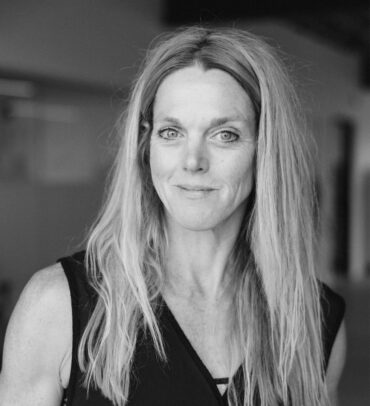Dr Stacy Sims: Why women, not men, benefit from ice baths after training
Unfiltered met with leading exercise physiologist and women’s health expert Dr Stacy Sims to discover her science-backed advice and insight on how women can better train, eat, recover and life to perform at their best.
This transcript has been taken from our video interview with Dr Stacy Sims. It has been edited for clarity and brevity. You can watch the full video interview here.
You’ve detailed how and why women respond and adapt differently to men in terms of training and nutrition, but are there also differences in how each gender recovers from exercise?
Yeah! So when we’re looking at recovery we know that women can petty much hold on to three really intense days and then they need to have a couple of days off.
I started noticing this anecdotally when I was bike racing and would go to a [training] camp and us women would be holding on to the wheels of the men until about the third day and then we’d have a day of being really flat or really need a day or two of recovery before we were fine again. Whereas the men, they could go hard for a whole week and only then they crash. Then after a day off they’re good to go again.
So it got me thinking, what’s going on here?
From a physiological perspective, when you start looking at it, women don’t have as much creatine. We have lower creatine storage than men. So that reduces our fast and energetic capabilities.
We also have differences in our neuromuscular firing rate, so we can be really quick, but we need more recovery. And there’s the fuelling as well. Women won’t tap into their liver or muscle glycogen as much as they do their fatty acids and their glucose. So we have to be very cognizant.
You can do two to three days of really hitting it hard and then you definitely need to recover for one or two days if you want to keep going. Or you could do two days on, one day off, moderate for two days, one day off, like that.
What about acute recovery protocols, such as cold water immersion? Are there notable gender differences there?
I am loving the conversation about how cold water immersion doesn’t do anything and how it’s really bad for you, especially you want adaptation, because all the research is based on male data.
Women vasodilate post exercise so all their blood goes to the periphery. Having a cooling mechanism will then send [cooled blood] back centrally, and that can improve their recovery.
But for men, their blood pools centrally [post exercise] so cooling won’t help. We actually see a negative effect of cooling because their blood is already back centrally, and if you have cold blood coming back centrally then it really dampens adaptation. But for women, some cooling really helps. So there are [gender] differences we need to be aware of.
Is this just the tip of the iceberg in terms of the lack of good data specifically dedicated to women’s training, nutrition and recovery?
This is where I get frustrated with sports science, because now there’s this thing called “not enough research”. In sports science, we see these these systematic reviews that are saying that we need more evidence and there’s [no data] for women.
But if we look outside of sports science, into more biomedical stuff, we see aspects that we can incorporate and extrapolate really good information around women. For example, if week look at how the menstrual cycle affects the immune system, we see that after ovulation there is more a pro-inflammatory response.
So if we’re looking at adaptation, we don’t want to put really heavy training loads and reduced recovery after ovulation because there’s systemic inflammation [already]. So from a training aspect, we want to look at things that aren’t going to invoke systemic inflammation because we already have that inflammatory response.
So there’s lots of really good, robust information that we can extrapolate from outside of sports science. Let’s stop complaining that there’s not enough research for women. Let’s do it and let’s pull on some of the research that’s already out there. We’re not starting from scratch.





